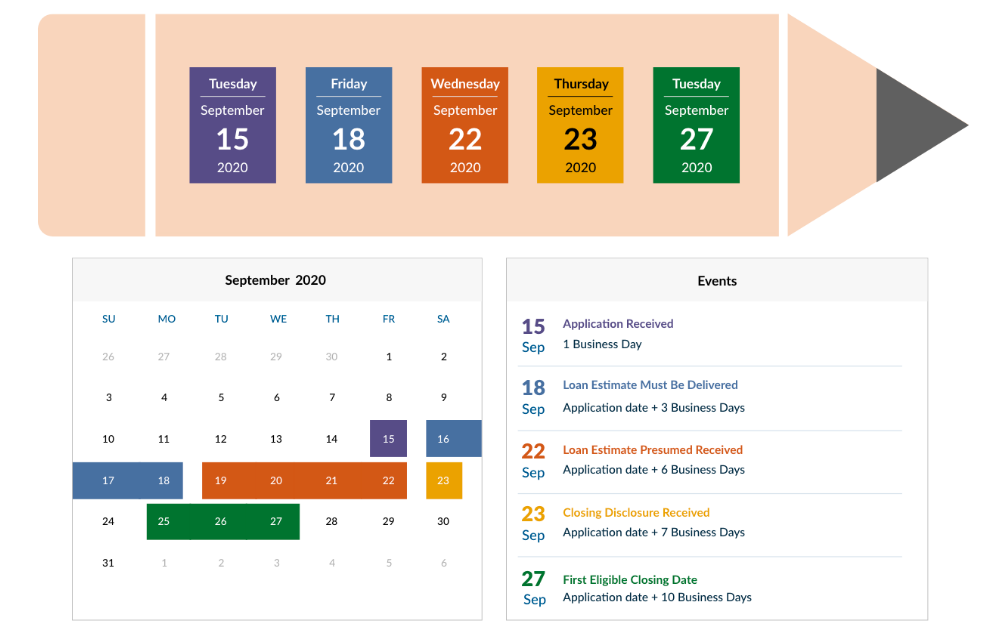In an effort to provide clear and helpful disclosures to consumers during the mortgage loan process, the Dodd-Frank Wall Street Reform and Consumer Protection Act (Dodd-Frank Act) directed the Consumer Financial Protection Bureau (CFPB) to integrate mortgage loan disclosures under two federal statutes: the Truth in Lending Act (TILA) and the Real Estate Settlement Procedures Act of 1974 (RESPA). Under TRID, integration of the mortgage loan disclosures and the new forms’ clear language and design make it easier for borrowers to locate key information on their loan documentation, and easily compare the costs of different loan offers.

FREQUENTLY ASKED QUESTIONS (FAQs)
Focus on the role of mortgage insurance with regard to the TRID rule.
If applicable to the loan, MI appears on the front page of both the Loan Estimate (LE) and Closing Disclosure (CD) .
Here MI is a payment calculation listed under “Projected Payments.”
MI also can appear in both the LE and CD under "Other Costs."
Certain MI rate plans must appear in the “Other Costs” section, while other rate plans may or may not appear on the forms.
MI that DOES appear on the LE and CD forms as “Other Costs – Prepaid:”
- BPMI (Borrower-Paid) Single
- Split Premium*
- Annual
MI that MAY appear on TRID forms as “Other Costs – Initial Escrow Payment at Closing:”
- BPMI (Borrower-Paid) Monthly upfront payment
*For informational purposes only. National MI does not currently offer a split premium product.
There are tolerance rules that apply to mortgage insurance (MI) and tolerance considerations will differ depending on the type of MI premium plan.
Monthly Premium Plans and Lender-Paid Plans are NOT subject to a tolerance rule.
Borrower-Paid Single Premiums, the upfront of Split Premiums and the Annual premium payment are subject to the 0% Tolerance rule, as it is a service that the borrower cannot shop for. Any upfront BPMI monthly payments are placed in escrow, and do not have a tolerance rule.
MI will not be a primary driver in the need for a revised LE or CD. MI rates will change as a result of a change in LTV/FICO® or product type. Those changed circumstances will cause a change in MI, and drive the need for a revised disclosure.
Lenders will need to remember to revise the MI if a changed circumstance warrants it, either in the revised LE or the CD.
Please visit the Consumer Financial Protection Bureau (CFPB) website to learn more.